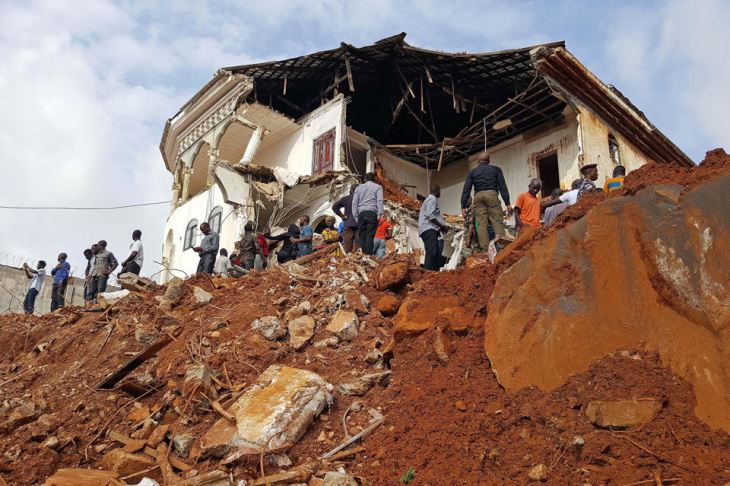Sierra Leone: Schools Reopen After Mudslide Disaster

Schools in Sierra Leone have reopened more than a month after a mudslide devastated communities around Freetown. But not all students can return as many schools are still being used as temporary shelters.
Schools in Sierra Leone have reopened in time for the official start of the school year, as residents continue to reel from the devastating mudslide disaster in August which affected many hilltop communities on the outskirts of Freetown.
At least one thousand people were killed and 5,000 people left homeless. The United Nations Children’s Fund (UNICEF) claims at least half of those affected by the disaster are children.
Victims shelter in schools
However not all students have access to their classrooms yet; the government has set up temporary shelters in some schools for the victims of the disaster, including Mallama Kanningo Pre-Primary. Head teacher Angela Marrah explains to DW how difficult this is on the students:
“We really want the children to be in school, but the school is occupied by affected people. We want the government to help us so that the children can go back to school. We need them to learn.”
Her school has a total of 884 students, however Marrah fears that they will not complete their syllabus on time as long as the building is being used as a shelter. Upon arriving to school in the morning, Marrah found that victims of the disaster took up most of the space and were cooking on the school’s benches. A number of textbooks used by students and teachers have gone missing as well and there is limited room for the children to sit in the classrooms.
Although Marrah sympathizes with people seeking shelter, she hopes that her pupils will be able to continue their studies as soon as possible.
“We are kindly asking the government to help these people so that the children will come back to school,” she says.
Attendance remains down
Bathurst Street Infant School in the heart of Freetown is also still feeling the impact of the mudslide disaster at the beginning of the school year. It is located near the coastal Kroo Bay slum community, which was seriously affected by the worst flooding seen in decades. Head teacher Phywlys Sharpe told DW how student attendance has suffered as a result:
“Some parents come in to say they can’t send their children to school because they don’t have any money yet. Others complained about the flooding in the Kroo Bay community. So I said ok, we will wait.”
Government working to relocating victims
Area parliament member, Shekuba Amanim, says the government is working hard to relocate victims of the disaster who remain stuck in school shelters.
“The government is serious about reopening the schools; it’s the main reason why the original date that schools were meant to reopen was never shifted.”
Amanim points out that, although Mallama Kanningo Pre-Primary is still occupied, the number has fallen from well over 500 as they are gradually re-located in groups.
“We are very serious about giving the school back to pupils and we are very serious about taking the victims out of the school within the shortest possible time.”
allafrica.com